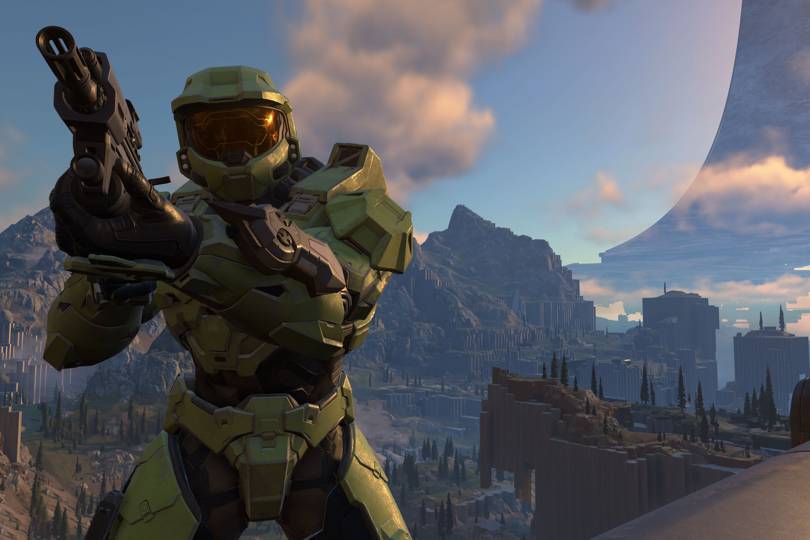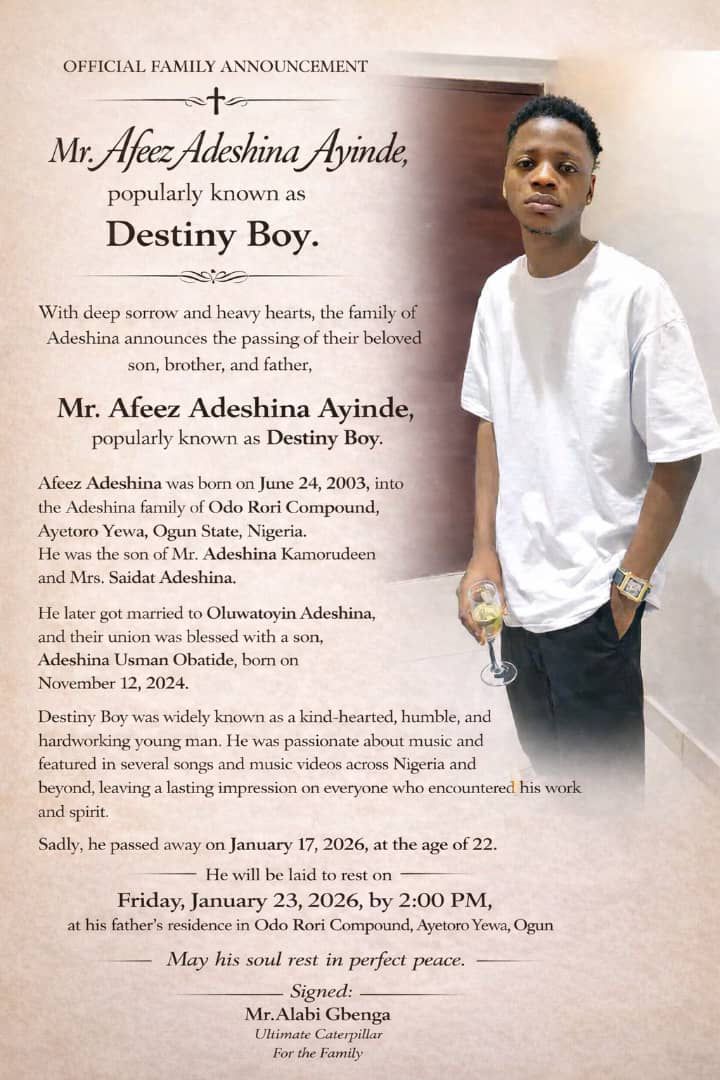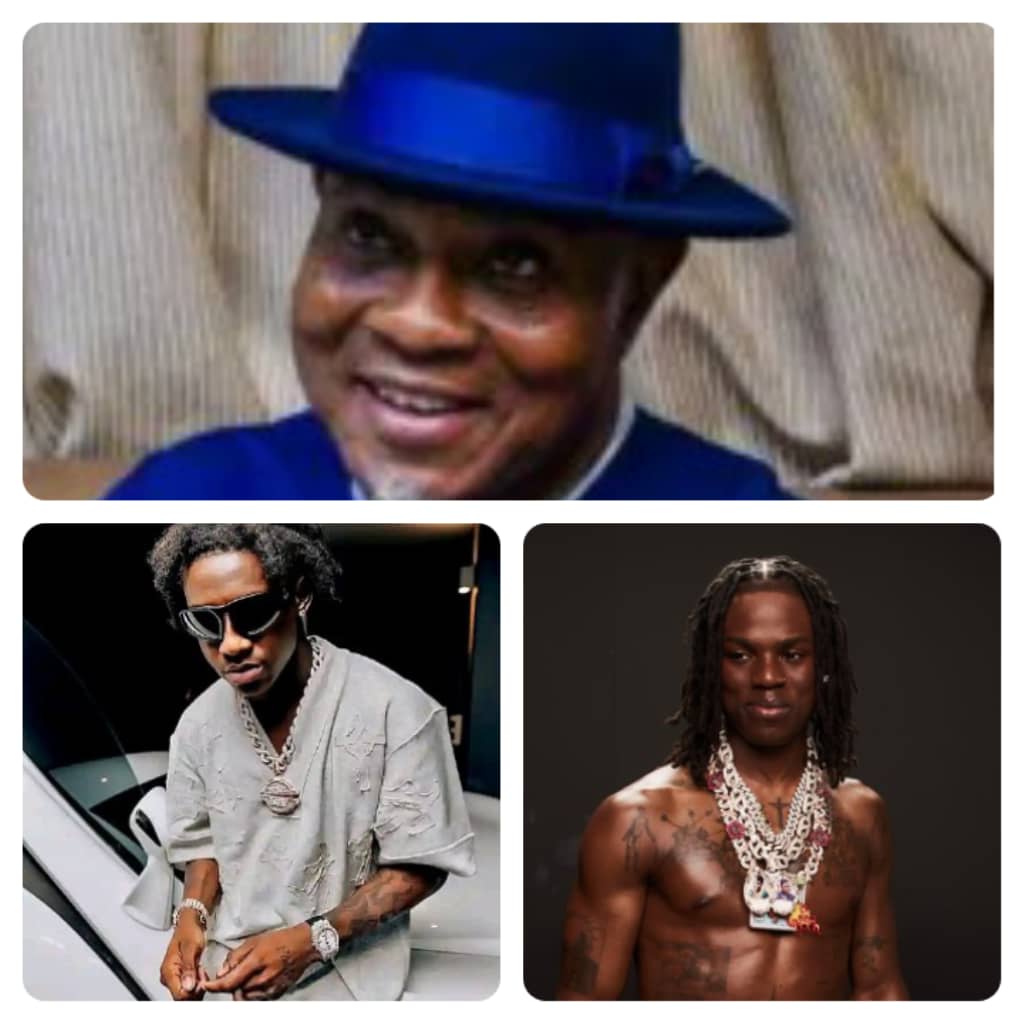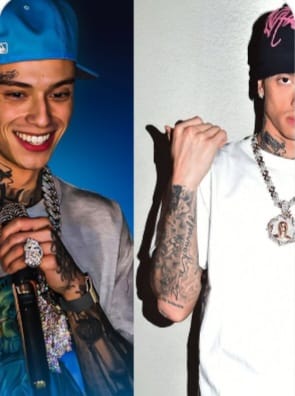Entertainment
The Xbox Series X Has Arrived


But faced with the reality of the original Xbox hardware, Molyneux’s boast was far beyond what he could deliver, and the apple core concept went down as an ambitious ideal for what Gameworld design could someday hope to achieve. Now, nearly two decades, and three generations of Xbox consoles later, such realism and responsiveness is no longer out of reach, says Jason Ronald, the development chief of the Xbox Series X.
Ronald is explaining what’s under the hood of the new generation consoles and why it matters. “I think it really comes down to larger, open, dynamic, more living worlds, where what you’ve done a couple hours ago is persistent in the world,” he says. “It’s really about creating that universe.”
Some reviewers have been struggling to find the feature or the game that makes a Series X worthy of purchasing over a PlayStation 5. This is the beginning of Microsoft’s answer. “Historically, when you think about console generations, it’s primarily driven by graphics innovation or graphics fidelity,” says Ronald, speaking days before the global launch of the Series X, along with its lower-spec sibling Series S. “The reality is developers can already deliver a really high quality, amazing, visual, 4K, HDR-enabled experience. So much of this generation is going to be how games feel and how they play.”
Reviewers have been impressed by the console’s mighty specs and evident power, but the delay of Halo Infinite into 2021 has left them without a standout game to show how this translates into the “emotion” and “immersion” that its manufacturer has promised.
Vanishing away loading times (which the big, boxy Series X certainly achieves) is welcome news for sure, but it’s a fairly lukewarm promise. However, developers from major studios who have spent months working with Xbox’s new architecture say the consoles’ Quick Resume feature is best seen as a teaser of the true achievements Microsoft has made under the hood.
Hands-on, the power is genuinely impressive, earning praise from PC gamers used to spending four or five times the Series X list price on a top-end rig. Microsoft has doubled down on calling this the developer’s console, and played up its co-development with input from its own game studios, major players and smart indies. In practice, this means developers no longer have to constrain the play space or programme in arbitrary work-arounds – “funneling the player through a hallway or a corridor or an elevator” which takes them out of the experience or slows down the play experience, Ronald says.
Yet for all the talk of teraflops, the fan response to July’s video of Halo Infinite’s gameplay was just what Microsoft didn’t want: its flagship release being met with a chorus of shrugs. A bad game would have been one thing, but an underwhelming game that failed to show what, if anything, the console could do differently, sounded alarms about whether Microsoft could match competitors’ marriage of hardware and experience (with Nintendo’s Switch still charmingly setting the benchmark, here).
On launch day, Halo will be missed, with neither the enhanced Gears 5 nor the three-year-old Destiny 2 filling that hole. There’s always a launch-day racer that shows off the latest graphics and physics, and Dirt 5 fills that slot, with satisfyingly wet mud and slippery performance, but even that isn’t a next-gen exclusive.
For gamers still expecting a new generation to mean a big step forward – think taking Mario’s first 3D leaps on N64 or Master Chief crash-landing onto Halo‘s ringworld on Microsoft’s first console – today’s launch can’t help but feel like a disappointment.
This strange moment is partly due to Microsoft’s decision to look beyond console gaming’s generation-by-generation leaps. Ronald says Microsoft is now committing to give the best possible experience “wherever a player chooses to play”. Its Amazon Prime-like subscription service, Xbox Game Pass, already has 15 million subscribers and allows them to play the same game while swapping between last-gen Xbox One hardware, Windows PC, and Android devices. Since September, subscribers have had access to its xCloud feature, which allows them to cloud stream games, ala Google Stadia.
No doubt Game Pass means a novel kid-in-a-sweet-shop experience the morning when the Xbox Series X arrives. Subscribers will have hundreds of titles at their fingertips, visually tuned up from older generations by the systems “AutoHDR” feature, with faster load times and higher resolutions. But the games themselves will largely be the same ones that were available on older consoles.
Ronald says he doesn’t believe this is the “last generation” of truly new Xboxes we’ll see before cloud computing takes over. However, with the Series X, Microsoft – which has in the past spoken of its desire for a more PC-like evolution of hardware – appears to be putting to bed the generational lurches of the past. But in Microsoft’s embrace of truly cross-platform play, it has robbed gamers of the thrill of past generations’ launch day excitement.
Microsoft seems to be playing the long game. It has recruited talent to pair with this hardware, including the $7.5 billion purchase of ZeniMax, parent of Elder Scrolls and Fallout publisher Bethesda. The company’s massive outlay (the acquisition cost more than Disney paid for Marvel, Pixar or Lucasfilm) is an indicator of how important first-party exclusive experiences are, in a generation when consumers are not just buying hardware but very likely joining a subscription ecosystem. Potential buyers want to see a formidable line-up of games coming up, at least to match Placentation’s upcoming exclusives including Spider-Man: Miles Morales and a new God of War sequel.
In Microsoft’s camp, there are notable absences (some blamed on Covid-19 related delays) the standout games from their key franchises have failed to materialize – with Halo delayed and a Fable sequel teased but not released. Other titles have been pushed back too, including The Medium – a psychological horror in which the player flips between the real and spirit realms – which has slipped to January.
In the short term, perhaps the best indication we’ll have of whether Series X can set itself apart from previous gens or competitors will come soon from Ubisoft’s two highly anticipated launch titles Watchdogs: Legion and Assassin’s Creed Valhalla – which are also released on PS5, and both previous gen consoles, as well as PC.
Claude Langlais, technical director at Ubisoft, says the Series X has allowed developers to finally convey the joy of real-world exploration. Rather than giving players a kind of coach-tour view of a Gameworld – creating impressive scenes but being forced to push players back into confined environments as they shuttle them in between – the graphical detail and CPU combine to create a sense of awe in open play.
“It’s a big world, and at any moment, you can stop and get breathtaking views,” says Langlais of Assassin’s Creed. “I really feel like you get the same kind of thing in this game where you’re traversing the real world, exploring, and then you stop and just soak it in. This really comes out clearly because you see that very high resolution and very high quality of detail.”
In the longer term, Bungie, which built the launch-defining Halo: Combat Evolved for the original Xbox back in 2001 (but is not in charge of Infinite), says increased CPU time, in addition to meaning better resolutions, opens up developers choices for future releases. “We could, in the future, plan on having more players, if that was something that design wanted to do,” says Andy Firth, lead platform engineering architect. “We could have a significant amount more simulation in the world, more trees,” says Firth. And more of the ray-tracing light simulation – which Ronald calls the “the holy grail of computer graphics” – rendering in real time, say, the headlights of a moving car reflecting off damp tarmac. “With the previous generation, we had hit kind of the peak of what could be done. With this new generation, we’re doing that same fidelity, but we’re barely touching the surface,” adds Firth.
Coalition, the makers of Gears 5 and Gears Tactics go one further in hype (although they are part of Xbox Game Studios). “We can load up and display a whole section of the world, as fast as you spin the camera around and you won’t even notice the [loss of] detail,” says Mike Rayner, Studio Technical Director at The Coalition. “And so we can actually render and draw more than we can possibly fit in memory.
“You know the metaverse? This holy grail of being able to create a lifelike replication of the world? This is the box that’s really designed to do that.” But without the games to back it up, the Series X remains a black box of hype and possibilities. It may well live up to Molyneux’s boasts about Fable, but until truly next-gen games finally arrive, it’s just unfulfilled potential – a seed planted in the ground.
Entertainment
From Drill to Deen: Central Cee’s Conversion and the Power of Faith in Modern Hip-Hop

From Drill to Deen: Central Cee’s Conversion and the Power of Faith in Modern Hip-Hop
By George Omagbemi Sylvester
“The British rap star’s public declaration of Islam sparks global reactions and renews debate about spirituality, identity, and influence in contemporary music.”
British rap superstar Central Cee has publicly announced that he has converted to Islam, a revelation that has rapidly spread across global media and social platforms, drawing reactions from fans, cultural commentators and religious observers alike. The development marks a deeply personal shift for one of the most influential voices in modern UK drill, and it highlights the growing intersection between faith, identity and popular culture.
Central Cee, whose real name is Oakley Neil Caesar-Su, disclosed the decision during a recent livestream, where he stated that he had taken the Shahada, the Islamic declaration of faith that formally marks a person’s conversion to Islam.
According to multiple reports published on February 6, 2026, the rapper confirmed the conversion publicly, saying he had changed his name and embraced Islam, with friends present during the broadcast congratulating him.
The announcement quickly became a trending global topic, with thousands of fans flooding social media with messages of support and congratulation.
What happened, when, where and how
The confirmed facts are straightforward.
What happened: Central Cee announced his conversion to Islam.
Who: The British rapper, born Oakley Neil Caesar-Su.
When: The announcement surfaced publicly on or around February 6, 2026.
Where: The declaration was made during a livestream, widely circulated online.
How: He confirmed he had taken the Shahada and embraced Islam, with friends present during the session.
Before this announcement, Central Cee had never publicly declared adherence to any specific religion, though fans had long speculated about his spiritual leanings.
Background: the rise of a global rap force
Born on June 4, 1998, in London, Central Cee rose from the streets of Shepherd’s Bush to become one of the most commercially successful British rappers of his generation.
He achieved mainstream recognition with his 2020 single Day in the Life and later dominated charts with hits such as Doja and Sprinter, accumulating billions of streams worldwide.
By the mid-2020s, he had become a defining figure in UK drill, blending street narratives with a polished, globally accessible sound.
Reactions and significance
The news of his conversion triggered widespread reaction across continents. Many fans congratulated him, using phrases such as “Welcome to Islam, brother,” reflecting the celebratory tone among supporters.
Others expressed curiosity about whether the decision would influence his music, public image, or future lyrical direction.
Cultural analysts note that religion has long played a quiet but significant role in hip-hop. From Malcolm X’s influence on American rap consciousness to the presence of Muslim artists in both US and UK scenes, faith has often shaped artistic identity.
British sociologist Dr. Reza Pankhurst, writing on religion and youth culture, has argued that for many urban artists, faith offers “a language of discipline, moral structure and belonging in environments often defined by instability.”
Similarly, American scholar Dr. Sherman Jackson has noted that Islam’s appeal among musicians and athletes lies partly in its “emphasis on personal responsibility, spiritual dignity, and community.”
While these are broader observations about religious influence in culture, they help explain why high-profile conversions often resonate far beyond the personal sphere.
Why the announcement matters
Central Cee is not merely another celebrity; he is one of the most commercially powerful voices in British rap, with global reach across Europe, Africa, Asia and North America. His decisions, therefore, carry symbolic weight.
When artists of such stature publicly embrace a faith, it often triggers three parallel conversations:
First, identity: Fans begin to examine how the artist’s beliefs align with their lyrics and public persona.
Second, influence: Younger audiences may view the decision as aspirational or spiritually significant.
Third, authenticity: Critics and supporters alike debate whether faith will reshape the artist’s artistic content.
British cultural commentator Kehinde Andrews has previously observed that hip-hop is “not just music but a social language through which young people negotiate power, race, faith and identity.”
In that sense, Central Cee’s announcement becomes part of a larger cultural dialogue not merely a personal declaration.
The question of a new name
Some reports indicate that the rapper mentioned changing his name after taking the Shahada, though details remain inconsistent across sources.
While certain online reports suggested possible new names, there is no universally confirmed official new name from the artist at the time of reporting.
This remains an evolving aspect of the story, and responsible reporting requires caution until a formal statement is released through verified channels.
The broader context: faith and hip-hop
Central Cee joins a growing list of artists who have publicly embraced Islam. Over the decades, figures such as Yasiin Bey (Mos Def), Lupe Fiasco, Ice Cube, and Q-Tip have either converted to Islam or drawn heavily from Islamic teachings in their music.
In the UK, Muslim identity has long been intertwined with the grime and drill scenes, reflecting the multicultural realities of cities like London, Birmingham and Manchester.
Cultural historian Tricia Rose, one of the foremost scholars of hip-hop, once wrote that the genre “has always been a site of spiritual searching, moral struggle and social commentary.”
In that context, a public conversion is not an anomaly but part of a longstanding tradition of artists seeking meaning beyond fame and commercial success.
What remains unclear
Despite the viral spread of the story, certain details are still evolving:
The exact location of the livestream has not been formally confirmed.
The identity of the individuals present during the Shahada has not been publicly verified.
Any official legal name change has not been documented in confirmed public records.
Responsible journalism requires distinguishing between verified facts and social-media speculation.
Final assessment
Central Cee’s conversion to Islam is a deeply personal decision that has nonetheless sparked global conversation. Announced during a livestream in early February 2026, the declaration places one of Britain’s most influential rappers at the centre of a broader discussion about faith, culture and celebrity influence.
In an era where artists are often defined solely by streaming numbers and chart positions, his announcement underscores a different narrative: the search for meaning, identity, and spiritual grounding in the midst of global fame.
As the late scholar James Cone once wrote, “Spiritual transformation is the most radical form of social change, because it begins inside the human soul.”
Whether Central Cee’s journey will reshape his music or remain a private source of guidance is a question only time can answer. What is certain, however, is that his decision has already stirred conversations that extend far beyond the world of rap.
Entertainment
Remembering Afeez Adeshina “Destiny Boy” : A Life of Promise, Music, And Quiet Impact ~ 1ST ELEVEN9JA TV

Remembering Afeez Adeshina “Destiny Boy” : A Life of Promise, Music, And Quiet Impact ~ 1ST ELEVEN9JA TV
By Alhaji Arems (Baba Fuji)
The Nigerian music scene is mourning the loss of Afeez Adeshina Ayinde, popularly known as Destiny Boy, whose passing has left a deep sense of grief among family, friends, and fans. Though his life was brief, his story is one marked by determination, creativity, and a steady rise driven by passion rather than noise. Destiny Boy passed away on January 17, 2026, at the age of 22, cutting short a journey that many believed was only just beginning.
Early Life And Background :
Afeez Adeshina was born on june 24, 2003, into the Adeshina family of Odo Rori Compound, Ayetoro Yewa, Ogun State, Nigeria. He was the son of Mr. Adeshina Kamorudeen and Mrs. Saidat Adeshina, raised within a close-knit family environment that shaped his values and character.
From an early age, Afeez was known for his calm demeanor and respectful nature. Those who grew up around him often describe him as gentle, focused, and quietly ambitious. Music became an outlet through which he expressed himself, long before public recognition followed. What began as interest and experimentation gradually turned into purpose.
Music Career And Creative Journey :
Known professionally as Destiny Boy, Afeez carved out his place in music through persistence rather than spectacle. He was deeply passionate about his craft and committed to growth, often collaborating and featuring in songs and music videos across Nigeria and beyond.
While he may not have been the loudest voice in the room, Destiny Boy earned respect for his work ethic and humility. He approached music with seriousness, seeing it not just as entertainment but as a path to building something meaningful. Colleagues and collaborators consistently describe him as hardworking, disciplined, and eager to learn — traits that set him apart in an industry often defined by fast success and fleeting attention.
His presence in multiple projects across different platforms reflected a steady upward movement. For many young creatives, Destiny Boy represented the quiet grind: showing up, improving, and letting the work speak.
Family Life And Personal Milestones :
Beyond music, Afeez embraced responsibility early in life. He got married to Oluwatoyin Adeshina, and their union was blessed with a son, Adeshina Usman Obatide, born on November 12, 2024. Becoming a husband and father added new depth to his life, grounding him further and reshaping his priorities.
Those close to him speak of his devotion to family and his desire to build a stable future. Balancing personal life with creative ambition was not always easy, but Afeez carried these responsibilities with maturity well beyond his years.
His Passing :
The news of Destiny Boy’s death on January 17, 2026, came as a shock to many. At just 22 years old, his passing raised a collective sense of loss — not only for what he had achieved, but for the potential that remained unrealized.
While details surrounding his death have been kept private, the impact has been deeply felt across his immediate community and within creative circles. Tributes have highlighted not only his music but his character: kind-hearted, respectful, and sincere.
Burial Arrangements :
The Adeshina family has announced that Afeez Adeshina Ayinde (Destiny Boy) will be laid to rest on:
Friday, January 23, 2026 :
Time : 2:00 PM
Venue : His father’s residence, Odo Rori Compound, Ayetoro Yewa, Ogun State
Family members, friends, colleagues, and well-wishers are expected to gather to pay their final respects and celebrate a life that, though short, left a meaningful imprint.
A Legacy Beyond Numbers :
Destiny Boy’s story is not one measured by chart positions or awards, but by consistency, humility, and quiet influence. He represented a generation of young Nigerian creatives navigating ambition, responsibility, and identity in real time.
In remembering Afeez Adeshina, many will recall a young man who showed up for his craft, valued his family, and treated people with respect. His journey serves as a reminder that impact is not always loud — sometimes, it is built patiently, one step at a time.
As he is laid to rest, his music, memories, and the lives he touched remain.
May his soul rest in perfect peace.
Entertainment
Benin Summit Group Congratulates Rema, Shallipopi for Flying the Benin Flag at AFRIMMA Awards

Benin Summit Group Congratulates Rema, Shallipopi for Flying the Benin Flag at AFRIMMA Awards
The Chairman-in-Council of the Benin Summit Group, Earl Osaro Onaiwu, has congratulated celebrated music stars Rema and Shallipopi for their outstanding achievements at the recently concluded AFRIMMA Awards, where they emerged as shining ambassadors of the Benin Kingdom on the global entertainment stage.
Rema, ( Divine Justice Ikubor) the internationally acclaimed Afrobeats sensation of Benin extraction, carted home three prestigious awards, while fast-rising artiste Shallipopi ( Crown Uzama) also clinched one award, marking a moment of pride not just for Edo State but for the entire Benin Kingdom.
In a statement issued by the Benin Summit Group, Osaro Onaiwu described their victories as a powerful demonstration of Benin excellence, creativity, and global relevance.
“I commend and congratulate Rema and Shallipopi for putting the Benin Kingdom firmly in the global space through their talent, hard work, and discipline. Their achievements are a source of pride to our people and an inspiration to our youths,” Onaiwu said.
He noted that the success of Benin sons in the global entertainment industry reinforces the importance of nurturing creativity and supporting young talents across music, film, fashion, and other creative arts.
“These accomplishments show what is possible when talent meets opportunity and determination. Benin land is rich in creativity, and the world is beginning to take notice,” he added.
Osaro Onaiwu further urged other Benin sons and daughters, particularly those in the creative and entertainment sectors, to remain focused and strive for excellence, emphasizing that global recognition comes through consistency, hard work, and commitment to craft.
“I urge others to strive harder to excel. Let the achievements of Rema and Shallipopi motivate the next generation to dream bigger, work harder, and represent Benin with dignity and pride wherever they find themselves,” he said.
He reaffirmed the commitment of the Benin Summit Group to promoting unity, culture, and development, including the creative arts, which he described as a powerful tool for projecting the Benin heritage and identity to the world.
According to Onaiwu, celebrating the successes of Benin sons and daughters across various fields remains central to the group’s mission of fostering unity, pride, and collective progress within the Benin Kingdom and the diaspora.
-

 celebrity radar - gossips6 months ago
celebrity radar - gossips6 months agoWhy Babangida’s Hilltop Home Became Nigeria’s Political “Mecca”
-

 society6 months ago
society6 months agoPower is a Loan, Not a Possession: The Sacred Duty of Planting People
-

 society5 months ago
society5 months agoReligion: Africa’s Oldest Weapon of Enslavement and the Forgotten Truth
-

 news6 months ago
news6 months agoTHE APPOINTMENT OF WASIU AYINDE BY THE FEDERAL GOVERNMENT AS AN AMBASSADOR SOUNDS EMBARRASSING










